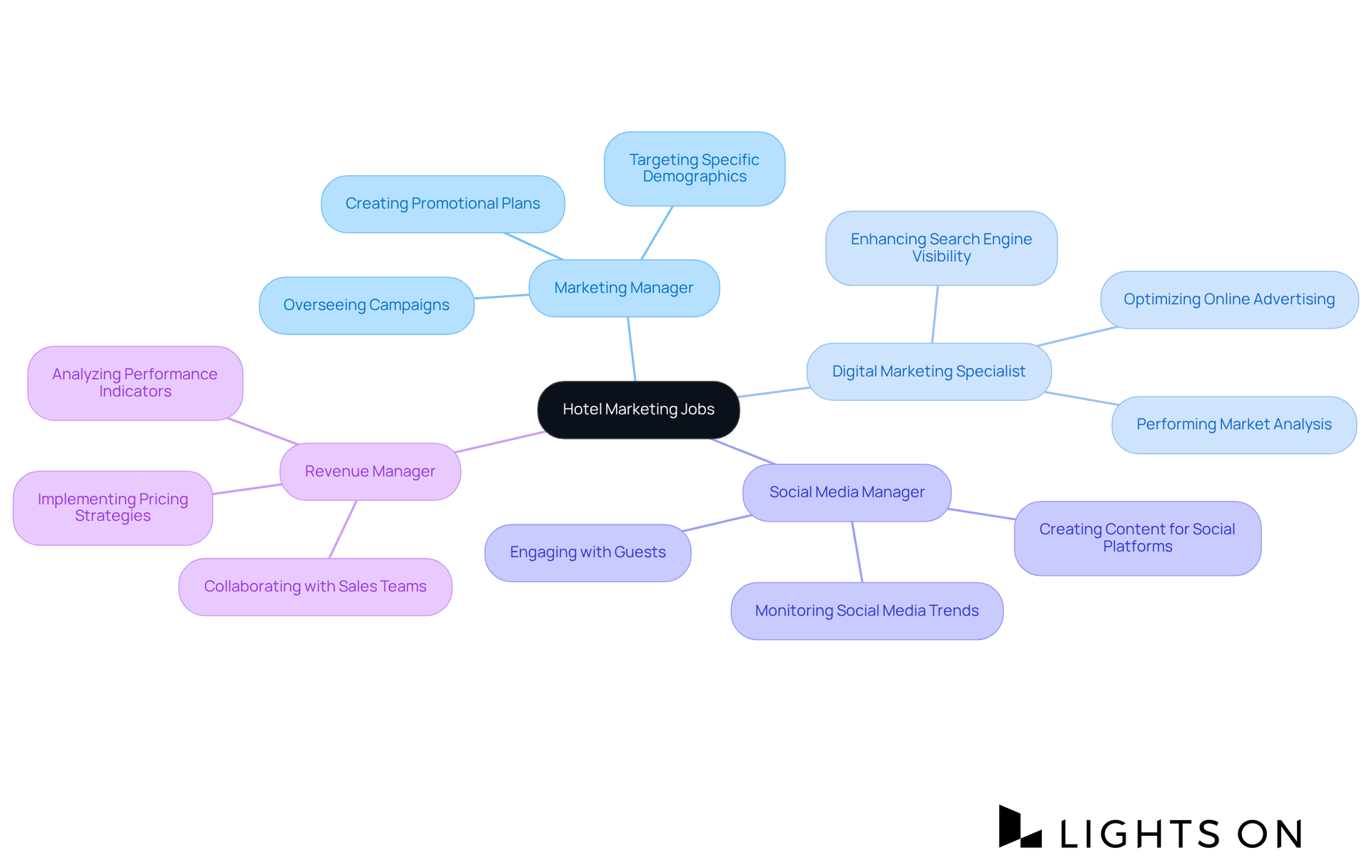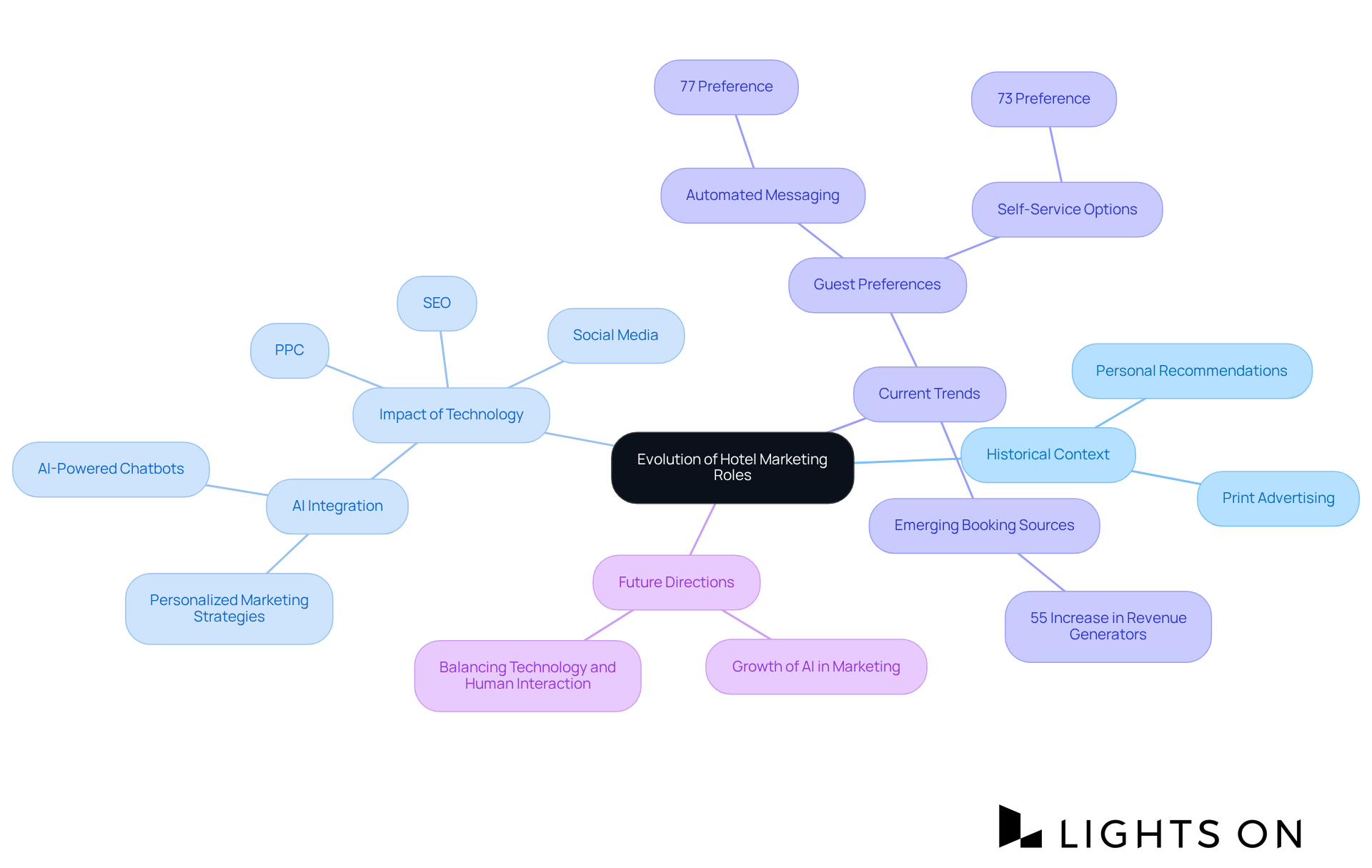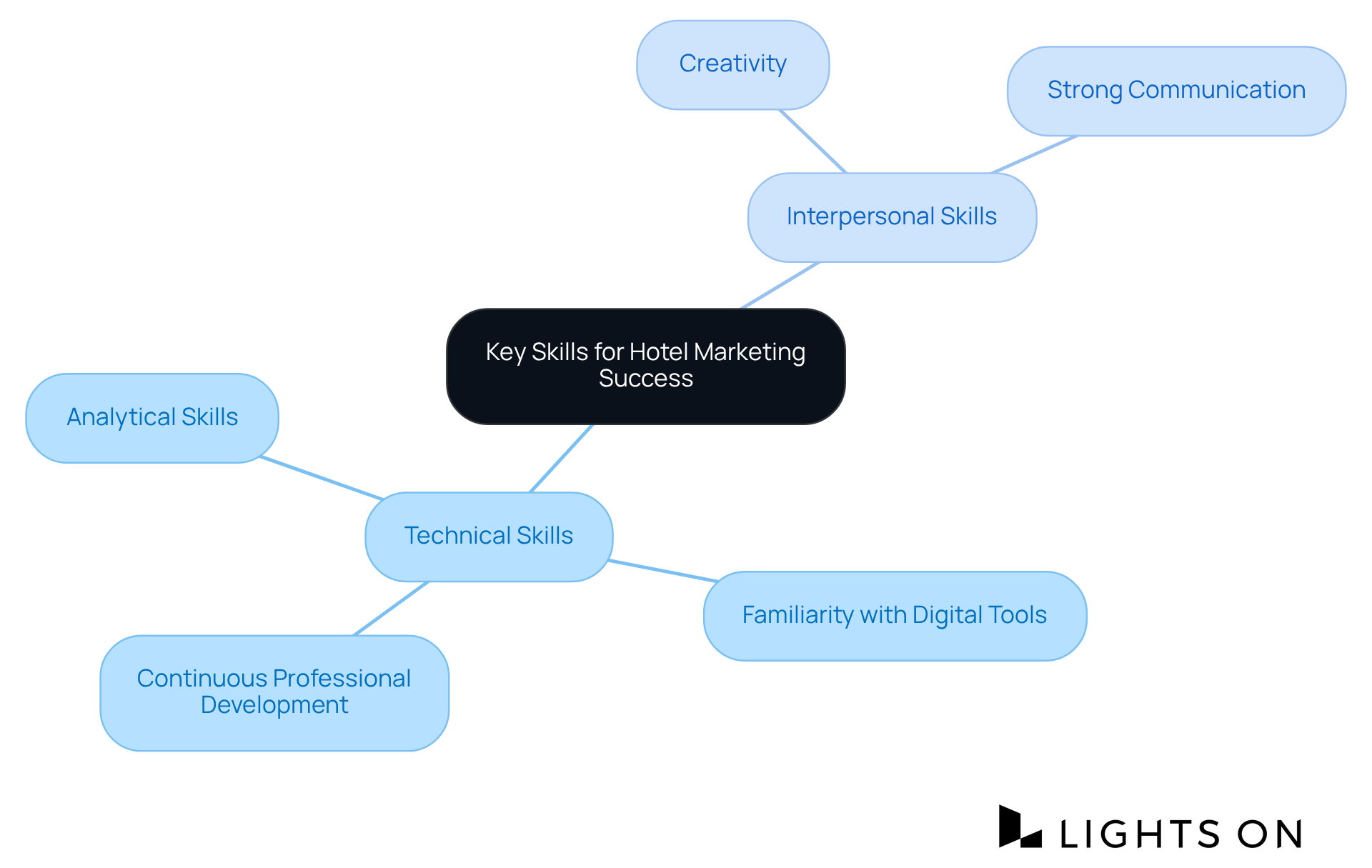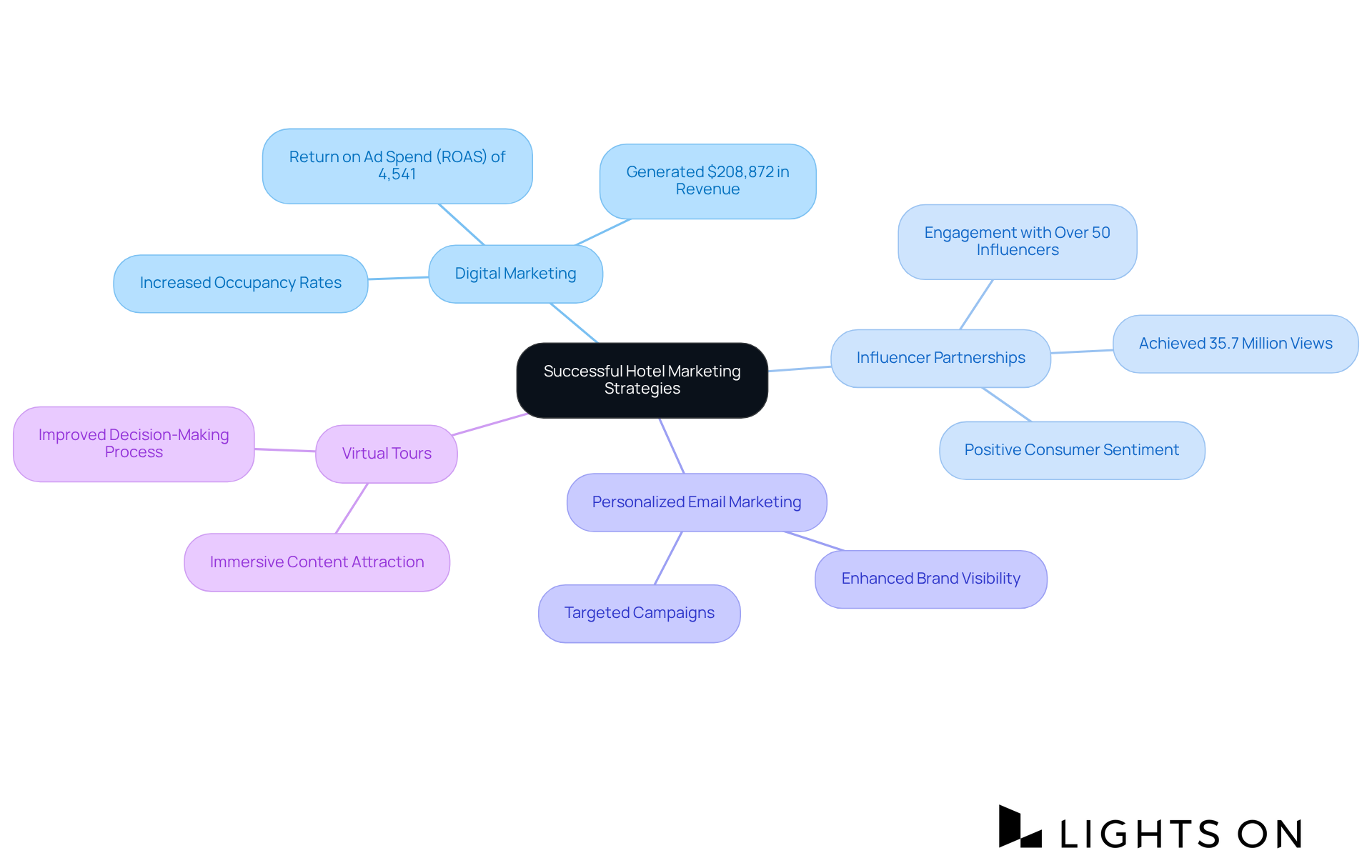This article delves into the pivotal roles, essential skills, and emerging trends in hotel marketing jobs, underscoring the variety of positions available and the dynamic landscape shaped by technological advancements and shifting consumer behaviors. It asserts that successful hotel marketing professionals must cultivate a blend of analytical, creative, and interpersonal skills, while also adapting to technological innovations—such as artificial intelligence and digital marketing strategies—that enhance guest experiences and stimulate revenue growth.
In a landscape where hospitality converges with innovation, hotel marketing has transformed into a multifaceted discipline, propelled by technological advancements and evolving consumer expectations.
Professionals in this field face not only the challenge of promoting hotels but also the necessity of navigating a complex digital terrain that requires a distinct set of skills and strategic thinking.
As the industry anticipates the integration of artificial intelligence and other cutting-edge tools, a pivotal question emerges: how can aspiring hotel marketers effectively balance technology with the personal touch that defines exceptional guest experiences?
Hotel promotion positions encompass a range of roles focused on advertising and enhancing the visibility of hotels and related services. Key positions include:
Duties generally include creating promotional plans, overseeing online visibility, performing market analysis, and evaluating performance indicators. For instance, a Marketing Manager may oversee campaigns that target specific demographics, while a Digital Marketing Specialist focuses on optimizing online advertising and search engine visibility.
In this competitive environment, can greatly improve your promotional efforts. As a strategic ally for revenue management initiatives, Lights On assists property owners in completing specific projects or delegating repetitive tasks, enabling them to concentrate on higher-level planning. By utilizing Lights On's expertise in booking engine collaborations and efficient promotional strategies, property owners can enhance guest booking experiences and ultimately increase their income. Grasping these roles is essential for anyone aiming to pursue a hotel marketing job, as each role distinctively contributes to the overall success of lodging operations.

The development of positions in hotel marketing jobs has been significantly influenced by technological progress and changing consumer habits. Historically, lodging promotion depended on print advertising and personal recommendations. However, the advent of the internet and social media has revolutionized these practices, necessitating a more sophisticated approach. Today, individuals in a hotel marketing job must skillfully maneuver through a complicated digital environment, utilizing tools like search engine optimization (SEO), pay-per-click (PPC) advertising, and social media interaction to effectively connect with potential customers.
In 2025, the incorporation of artificial intelligence (AI) is poised to further improve promotional strategies. AI allows for customized marketing strategies by examining customer information to offer personalized suggestions, thus enhancing client satisfaction. For instance, AI-powered chatbots can handle inquiries and assist with bookings, significantly improving response times and customer service efficiency. This shift towards automation enables service staff to concentrate on providing personalized experiences, which remains a critical aspect of hospitality.
Recent trends indicate that 77% of guests prefer automated messaging or chatbots for customer service, highlighting a growing acceptance of technology in enhancing the guest experience. Moreover, the rise of contactless technologies is reshaping expectations, with 73% of travelers expressing a preference for self-service options during their stays.
Case studies illustrate these trends effectively. In 2024, seventeen new booking sources emerged as top revenue generators, marking a 55% increase from the previous year. This shift highlights the dynamic nature of the market and the necessity for hotels to adjust their promotional strategies for a hotel marketing job accordingly. Furthermore, the worldwide hospitality sector is expected to grow to around $4.9 trillion, fueled by a rise in leisure and 'bleisure' travel, which signifies a strong need for creative promotional strategies in a hotel marketing job.
Expert opinions further emphasize the importance of balancing technology with human interaction. While AI can streamline operations and improve promotional efforts, is essential for nurturing customer loyalty. As the sector continues to develop, accommodation promoters must adopt these technological innovations while staying aware of the distinctive needs and preferences of their visitors, ensuring a comprehensive approach to hospitality.

Successful specialists in a hotel marketing job embody a unique blend of technical and interpersonal skills crucial for navigating the complexities of the . They must possess:
Additionally, familiarity with digital promotion tools and platforms is essential for anyone pursuing a hotel marketing job, alongside a comprehensive understanding of the industry's unique challenges.
Furthermore, flexibility and a willingness to adopt new technologies are vital, especially given the rapid evolution of practices in this field. Continuous professional development through courses and certifications not only enhances one’s skill set but also positions specialists to effectively tackle emerging challenges. By investing in their growth, hotel promotion specialists can ensure they remain at the forefront of industry trends, ultimately benefiting their organizations and clients.

Case analyses of successful accommodation promotion techniques illustrate the effectiveness of targeted campaigns and innovative methods. For instance, the Hotel Wailea in Hawaii executed a comprehensive digital marketing strategy that encompassed social media engagement, influencer partnerships, and personalized email marketing. As a result, the establishment witnessed a significant increase in occupancy rates and brand visibility.
Furthermore, luxury hotels have effectively utilized virtual tours and immersive content to attract guests during the decision-making process. These case studies underscore the vital role of creativity and in achieving success in a hotel marketing job within the hospitality sector.

The landscape of hotel marketing is continuously evolving, driven by technological advancements and shifting consumer preferences. Understanding the diverse roles within hotel marketing—from Marketing Managers to Digital Marketing Specialists—is crucial for anyone aspiring to thrive in this competitive field. Each position plays a significant role in crafting effective promotional strategies that enhance a hotel's visibility and appeal to potential guests.
Key insights reveal that successful hotel marketing relies on a blend of creativity, analytical skills, and a deep understanding of digital tools. The integration of AI and automation is reshaping how hotels interact with guests, offering personalized experiences that cater to individual preferences. Furthermore, case studies highlight the importance of targeted campaigns and innovative marketing methods that not only increase occupancy rates but also strengthen brand loyalty.
As the hospitality industry continues to grow, the demand for skilled hotel marketing professionals will only intensify. Embracing new technologies while maintaining a personal touch in customer interactions will be vital for success. For those looking to make their mark in hotel marketing, investing in continuous learning and adapting to emerging trends will pave the way for impactful careers and enhanced guest experiences.
What are the main roles in hotel marketing jobs?
The main roles in hotel marketing jobs include Marketing Manager, Digital Marketing Specialist, Social Media Manager, and Revenue Manager.
What are the primary responsibilities of a Marketing Manager?
A Marketing Manager is responsible for creating promotional plans, overseeing campaigns that target specific demographics, and evaluating performance indicators.
What does a Digital Marketing Specialist do?
A Digital Marketing Specialist focuses on optimizing online advertising and enhancing search engine visibility for hotels.
How does a Social Media Manager contribute to hotel marketing?
A Social Media Manager is responsible for managing the hotel's social media presence and engaging with potential guests through various platforms.
What is the role of a Revenue Manager in hotel marketing?
A Revenue Manager analyzes market trends and pricing strategies to maximize the hotel's revenue and occupancy rates.
How can collaborating with Lights On benefit hotel marketing efforts?
Collaborating with Lights On can improve promotional efforts by assisting property owners with revenue management initiatives, completing specific projects, and allowing them to focus on higher-level planning.
What expertise does Lights On provide to hotel property owners?
Lights On provides expertise in booking engine collaborations and efficient promotional strategies, enhancing guest booking experiences and increasing income for hotel property owners.
Why is it important to understand the different roles in hotel marketing?
Understanding the different roles in hotel marketing is essential for anyone pursuing a career in this field, as each role contributes uniquely to the overall success of lodging operations.
Transform your group booking strategies with Lights On and watch your occupancy soar.